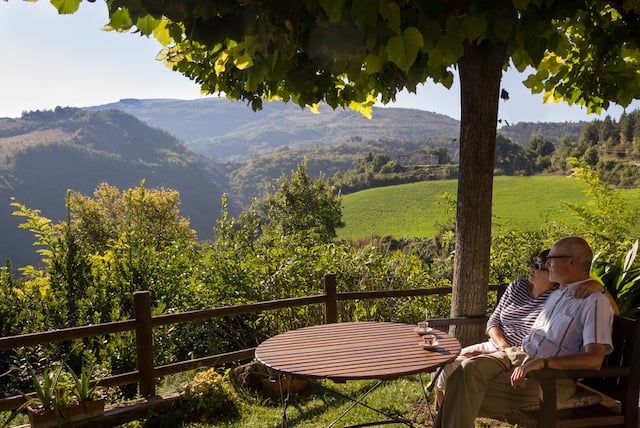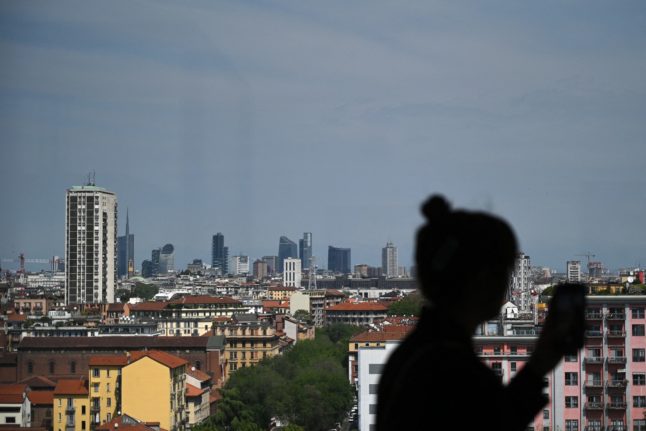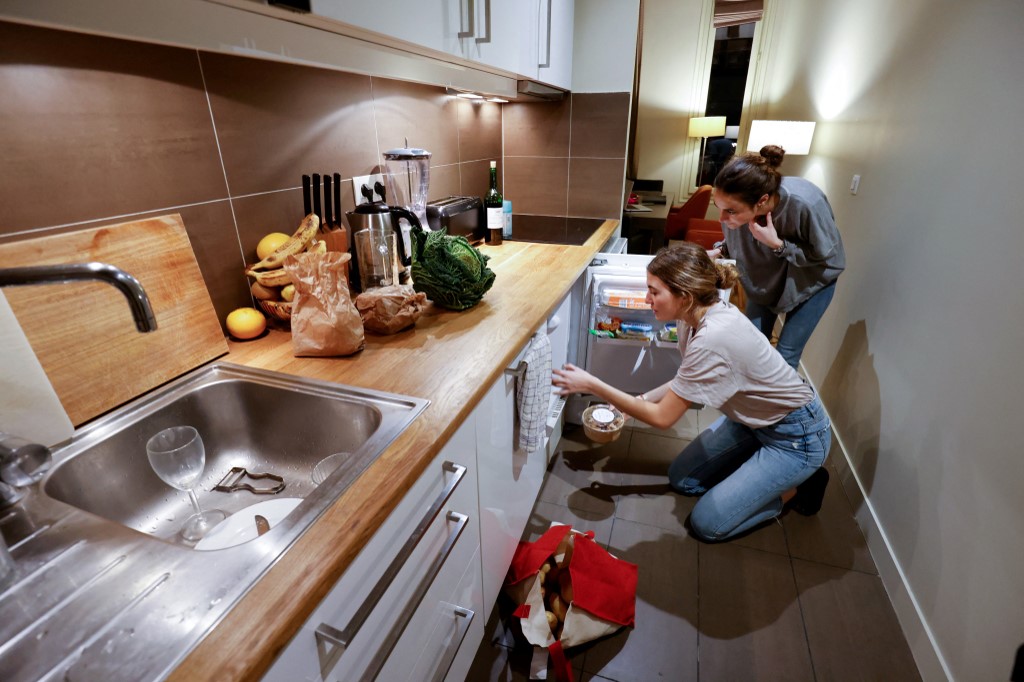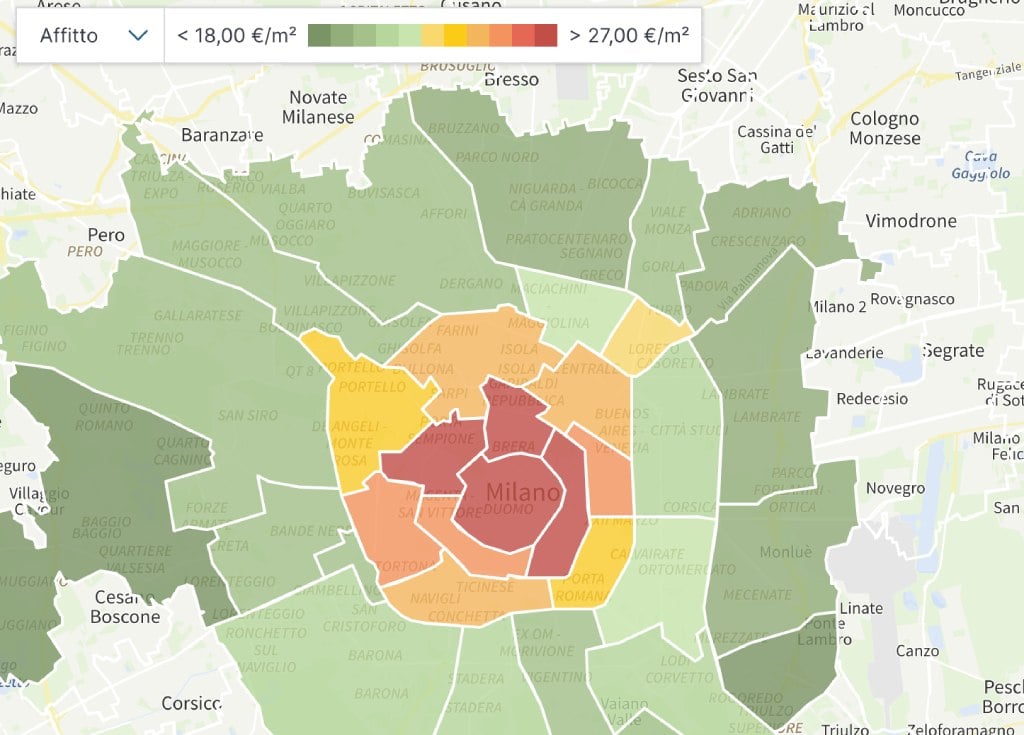Note: This article is based on one writer’s experience and some details of the process may vary by consulate.
After having traveled to Italy numerous times, around 2012 it dawned on us that Italy might be a good place to retire.
In the early ’80s, I had been inspired by meeting a retired American living in a charming house along the Mediterranean. I chatted with him from the cobbled street while he tended a small garden in shorts and sandals. It seemed pretty idyllic to me at the time. Of course, back then, retiring was decades off. Now it was right up on me.
With retirement approaching, how would I exactly go about such a life-changing process of moving to a completely different country?
READ ALSO: ‘What I wish I’d known’: An American’s advice on getting residency in Italy
By 2014, we had decided to move to Italy and in particular, the region of Le Marche. We had done considerable research on regions and towns, but now we needed to get serious.
We were seeking the Elective Residency Visa, which as the Italian Consulate of San Francisco describes it is for people who “wish to reside permanently in Italy and who can demonstrate a stable and ample pension income and high financial resources”.
In other words, the visa is intended for people who want to live in Italy. It is not for extended vacations or sabbaticals. Nor is it for anyone who wants to work in Italy – even freelance or remotely – or who does not have the means to support themselves without a job.
But if you’re an independent retiree looking to move to Italy, it might just be for you.
The application
There is an application form, but more important are all the supplemental documents you will have to provide.
The primary ones are:
- Your passport
- Proof of address
- A signed contract to lease an apartment or purchase a home (note the risk here: staying with someone else or in a hotel isn’t accepted, yet you don’t know when you’ll be ready to move in to accommodation of your own)
- Proof of monthly income (they will check to see if this makes sense for your destination)
- Bank statements of income and outflow for at least six months (to prove financial stability)
- Two letters of reference from financial institutions
- Last two years of tax returns
- FBI criminal background check (you must apply to the FBI yourself and wait for that process)
- A personal letter describing why you want to live in Italy, where you want to settle and who’ll be coming with you
- Recent passport-style photo
- Application fee (which is adjusted every three months depending on the exchange rate)
Your nearest consulate will have a more complete list; if you are missing something when you finally appear for your personal appointment, that is potentially grounds for rejection. Then you start over again.
You will need to give up your passport. It will take a few months to get back, so you can’t have any other international travel planned in that period. (It is a bit unnerving to be without a passport.)
You will also need to make an appointment for a personal appearance at the consulate. You can do this on their website, but available dates might be months off.
Of course, you will need to plan a trip to do this and allow for enough time for travel mishaps. If you miss the appointment, you will have to make another; you can’t simply show up at another time.
We received the list of required documents in mid December of 2016. Because an FBI background check was on the list, we tackled that first, given that we had no idea how long it would take. I went to the nearest FBI office in mid January of 2017, which gave me a form to fill out along with a required fee. No questions were allowed. That process ended up taking two months; there was no way to ask anyone or check online about the status.
While that was ongoing, we assembled all the other numerous required documents.
One of the other items was proof of purchase for a house (or alternatively a rental agreement). This meant we had to schedule a trip to Italy in early May of 2017 to close the sale and obtain the documents. Documents involving house purchases require personal presence, so a signed and mailed agreement was not possible. Of course, arranging this took a leap of faith, as we had no visa yet.
Meanwhile we had to schedule a personal appearance at the consulate. No slots were available until late May (appointments were only on one morning of each week).
The appointment
We were given an appointment in late May of 2017. In our case this was in San Francisco. We brought all the required documents – contained in tabbed folders for easily handing them over to the officer.
As we waited, we noticed other people being turned away because of one or more items missing. We also noticed some crazy things like a guy who showed up, representing his girlfriend, who he said could not make it. We saw the agent was clearly suppressing a laugh.
The officer assigned to our case was very affable and friendly. He even responded to emails after our appointment. He pointed out an additional needed document but said we could mail it in.
However, we did not see similar treatment from other consular agents. They were curt and brusque in demeanor. It’s best to come with an attitude of ‘what can we do to make the review easier for you?’
Incidentally, my image of the appointment had been shaped by too many Hollywood movies. I had imagined an officious older man in a tailored suit or uniform, sitting at a big desk and firing off random questions.
Nope. The visa discussion was held standing up at a bank-like counter with a glass front. It is neither quiet nor private. You can overhear the people at the next counter and everyone in the waiting room can hear your answers to personal questions.
What comes next?
The consulate warns that the elective residency visa is “the most strictly regulated visa” for Italy and officers may spend up to 60 days examining your application.
We were scheduled to move in mid August of 2017. By then we had arranged for shipping personal effects and given notice on our apartment. We were at the point of no return.
My passport with the visa glued into it arrived in the mail in late July, a few weeks before we were scheduled to leave. More than a few nerves were wracked.
In total it took us seven months after initiating the process, and two months after the appointment with the consulate. We attribute the latter to the fact that we had every single document on their list, ready to hand over as the agent asked for it.
We actually don’t have complaints about the time. It was more the uncertainty of the process and how many items were required.
While on the moving trip to Italy, I was asked for the visa several times. Once in Italy, I have been asked for it only a few times: to apply for a permesso di soggiorno, apply for my identity card, open an Italian bank account, and be assigned a tax code (codice fiscale). Once I had my carta di identita, I have rarely been asked for my passport.
Obtaining an elective residency visa is an arduous process. The process is filled with fear and angst.
But it is also great practice for subsequent dealings with the Italian government. Besides, for many Americans it is the only way to live in Italy.
Looking back now, it was entirely worth both the effort and the anxiety.
Mark Hinshaw is a retired city planner who moved to Le Marche with his wife in 2018. A former columnist for The Seattle Times, he contributes to journals, books and other publications.
This article was first published in 2020.
Please note that The Local cannot advise on individual cases. Anyone considering applying for an Italian visa is advised to contact their consulate to confirm the requirements.





 Please whitelist us to continue reading.
Please whitelist us to continue reading.
As a Brit considering retiring to Italy post Brexit the big question I have is WHAT is the minimum monthly income required and how will I prove it for me and my partner? At this moment I am in full time employment, but a year or two from retirement, so if I applied while in this situation my monthly income will be healthy – but things will change dramatically once I stop working. Presumably the application makes more sense if you have not been working for some time rather than making it as soon as you retire. Does anyone have experience of how rigourously the income assessment is defined and implemented? For example, I would want a significant chunk of my income to be rental from the property I live in London – would a hypothetical rental income be acceptable?
Good questions!
My question is: what is the most appropriate method for a retired American couple to get residency in Italy if one holds an EU passport, but the other does not? (My husband was born in Ireland.)
We’re stationed with the US military in Germany and plan to retire to Italy in three years. I’ve been searching for information on doing that from Germany but I’m having no luck. Does anyone know who I’d contact?
Which health insurance did you buy?
Simon,
Hi, I have an elective residency PdS. I showed them my pension award document and 3 bank statements showing the money going in. If your using rented property as your income, you’ll need to show a rental agreement and similar bank statements. This isn’t really designed for someone still working. They are very strict and there’s no chance of winging it but follow the rules and it is doable.
Maggie,
If your husband is an EU Citizen, there shouldn’t be any problem. Spouses don’t become citizens but they get full healthcare etc. (Elective Residence doesn’t get you that btw).
Maje,
Elective Residence is the most straightforward for retired people. Btw, my insurance was with Gigna and cost 1100 gbp. Signing up was easy but I’ve never claimed anything so no idea about that.
Good luck everyone!
As UK citizens my husband and I jointly purchased a home in Umbria in May 2022 with the intention of residing there full time. We are both retired. We submitted ERV Applications together in August 2022 via vfs global which were refused on the grounds that we do not have sufficient annual income. The Consulate appear to have assessed us individually as opposed to as a married couple – the minimum for a married couple is €38,000 – we well satisfy this level but our Visa’s have been denied. In addition it also appears that the Consulate have not understood my Pension which is a Self Invested Pension Plan as opposed to an Annuity. We have now instructed Italian lawyers who advise us that we satisfy the criteria and who have made submissions on our behalf requesting a review by the Consulate – we are still waiting a response to this. An ERV is not straightforward: there is little advice and information available and no ability to speak to anyone at the Consulate as you have to apply via vfs global who are in effect a postbox for the UK/Italian Consulates. In hindsight we should have instructed an Italian lawyer to make the original Application. We have been away from our dream Italian home for 4 months now: we sold our UK home to buy our Italian home so are reliant on friends and family in the UK: we can return but currently only for 90/180 days so be aware that this is a complicated issue. We know of other couples who have also been refused on income grounds.
Several Points.
There is NO LONGER a requirement for the FBI background check.
Monthly or yearly financial resource amounts will not be given…offically. But several agents have been known to say about 35k euro for a single or 50k euro for couple. As a guide.
As for health insurnace…LISTEN—once you have your Permesso or have even applied properly, you are eligible for Italian health insurance. It is VERY inexpensive!! It is calculated on your “net” worth in Italy. No premiums, no deductibles, no office visit charges. Some items of course require a payment but even they are cheap.